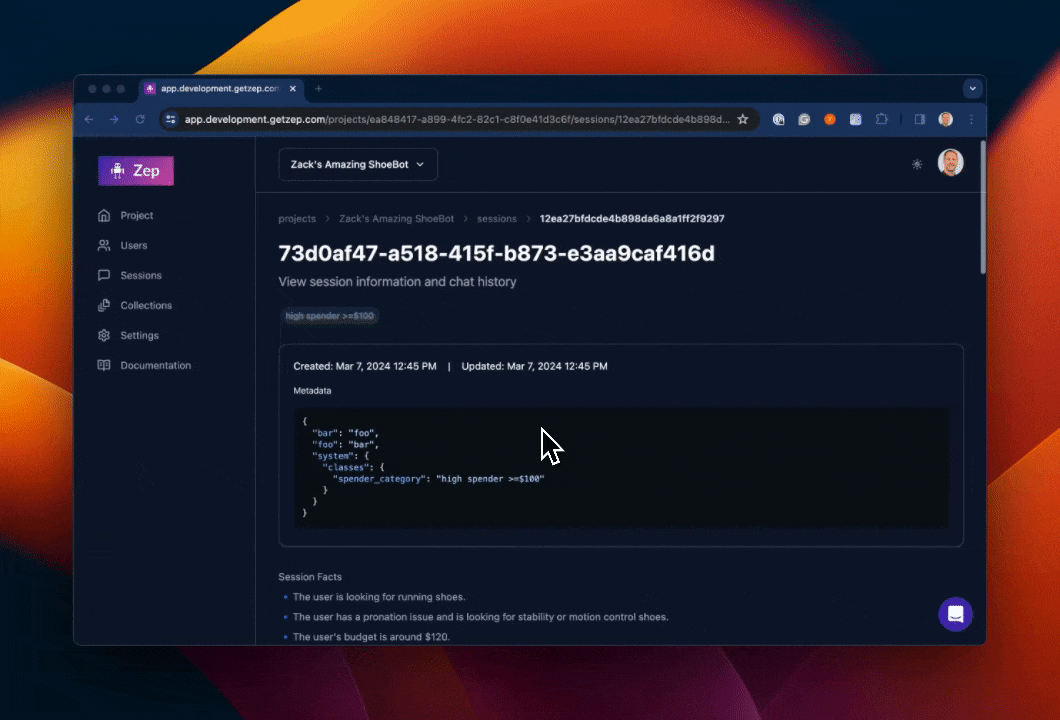- Zep AI is an innovative startup revolutionizing AI assistants by integrating long-term memory capabilities.
- Current AI assistants lack continuity and personalized engagement due to memory limitations.
- Zep’s AI assistant stands out by retaining past conversations and extracting valuable insights for enhanced interactions.
- Long-term memory enables Zep’s AI to understand user preferences, habits, and emotions, leading to a tailored user experience.
- With $2.3 million raised in funding, Zep AI is poised to redefine the role of AI assistants as indispensable lifelong companions.
Main AI News:
In the ever-evolving landscape of artificial intelligence (AI), the quest for smarter, more personalized AI assistants has become paramount. While these digital companions have seamlessly integrated into our daily lives, their efficacy has often been hampered by a lack of long-term memory capabilities. This deficiency results in repetitive interactions and a failure to retain crucial information from previous engagements.
Enter Zep, a trailblazing AI research startup that has redefined the paradigm of AI assistants with its groundbreaking approach. Unlike its contemporaries, Zep’s AI assistant is equipped with long-term memory, a feature that not only amplifies its capabilities but also revolutionizes our interactions with AI. By leveraging this innovative technology, Zep empowers its AI assistant to recollect past conversations and glean valuable insights, thereby fostering a more personalized and intelligent user experience.
Zep addresses two fundamental challenges plaguing current AI assistants:
Firstly, conventional AI assistants often struggle to maintain continuity in conversations, resulting in frustration for users who are forced to repeatedly clarify or reiterate their queries. This impediment diminishes user satisfaction and inhibits the potential for deeper engagement.
Secondly, the sporadic retention of pertinent details from previous interactions limits the ability of AI assistants to comprehend user preferences, habits, and aspirations. Without access to this reservoir of data, AI assistants are unable to tailor their responses or anticipate user needs effectively.
With Zep’s AI assistant, the concept of long-term memory transcends speculation and becomes a tangible reality. By extrapolating intent, sentiment, and key data points from past dialogues, Zep’s AI empowers assistants to gain profound insights into user behavior, facilitating a more refined and personalized service. This transformative capability not only augments user satisfaction but also heralds a new era of possibilities for AI technology.
Securing a total of $2.3 million in funding across two rounds, Zep AI stands at the forefront of innovation in the AI landscape. Through its visionary approach to long-term memory integration, Zep is poised to redefine the role of AI assistants, transforming them from mere utilities to indispensable lifelong companions. With Zep, the future of AI is not just intelligent—it’s profoundly personal.
Conclusion:
The emergence of Zep and its AI assistant with long-term memory signifies a significant advancement in the AI market. By addressing critical deficiencies in current AI assistants and offering a more personalized user experience, Zep has positioned itself as a frontrunner in AI innovation. This development is poised to drive market demand for AI solutions that prioritize intelligent, individualized interactions, reshaping the landscape of AI technology and its applications across industries.

